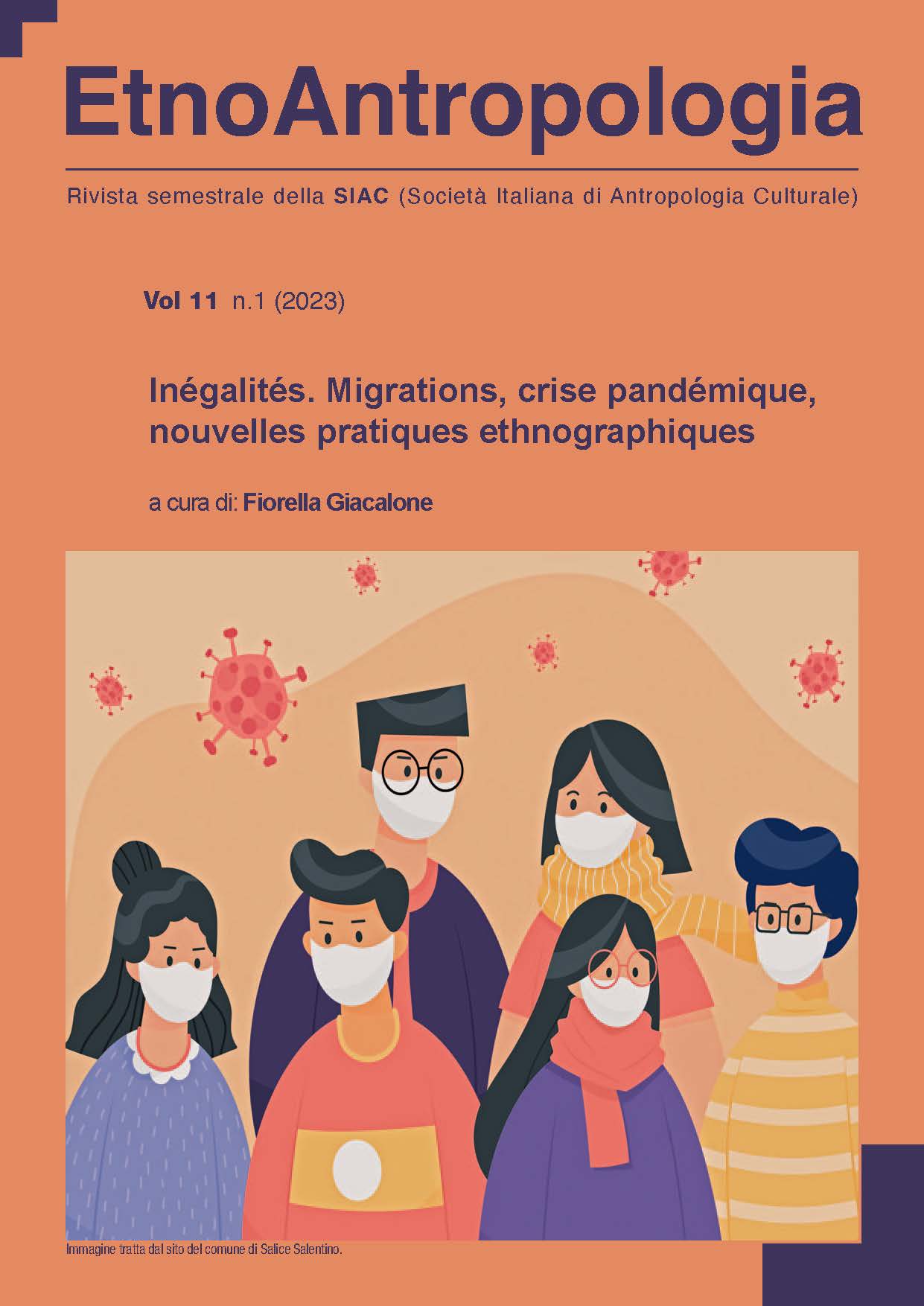Diseguaglianze nell’eguaglianza. Il ruolo dell’amministrazione pubblica Inequalities in Equality. The Role of Public Administration
Parole chiave:
Inverse care law, public administration, services, equity, ethic of careAbstract
In 1971 Julian Tudor Hart formulated the «inverse care law» to highlight how those most in
need of medical care, on average, receive less, and to highlight the inequities of many European
redistributive systems. Even today, our public administrations fail to reverse this law and the
people in greatest need receive less support and fewer services. Phenomena such as increasing
ageing, economic crises, migration, increase society’s needs and the number of people at risk
of being left without support. In order to understand why public administrations often fail to
intercept specifically the needs of the most vulnerable, it may be useful to consider the feminist
critique of today’s prevailing theory of justice, that of John Rawls. The essential objection
concerns imagining the people who enter into the social contract all as adult, autonomous and
independent. This leaves the concept of mutual interdependence out of the justice paradigm and
influences the behavior of public administrations. It is therefore necessary to rethink administration
differently and in this redesign process feminist thought can provide another important
contribution through the theories of the ‘ethic of care’.
Riferimenti bibliografici
Bombardelli M. 2022, L’organizzazione dell’amministrazione condivisa, Arena G., Bombardelli M. (eds.) L’amministrazione condivisa, Napoli: Editoriale Scientifica, 113-146.
Botti C. 2018, Cura e differenza. Ripensare l’etica, Milano: LED Edizioni Universitarie di Lettere Economia e Diritto.
Carloni E. 2020, Diritti by design. Considerazioni su organizzazione, autonomia organizzatoria e protezione degli interessi, «Persona e amministrazione», 1: 52-62.
Casadei T. (ed.) 2015, Donne, diritti, diritto: prospettive giusfemministe, Torino: Giappichelli.
Cookson R. et al. 2021, The inverse care law re-examined: a global perspective, «The Lancet», 828-838.
Di Cosimo G. 2021, Divario sociale ed eguaglianza, https://www.lacostituzione.info/index.php/2021/04/11/divario-sociale-ed-eguaglianza/
Giacalone F. 2021, L’etica della cura al tempo del Covid: una riflessione sul welfare e sulle disuguaglianze di genere, «EtnoAntrolopogia», 9 (1): 137-156.
Gilligan C. 1983, In A Different Voice: Psychological Theory and Women’s Development, Cambridge: Harvard University Press.
Giolo O. 2015, Oltre la critica. Appunti per una contemporanea teoria femminista del diritto, «Diritto & Questioni Pubbliche», 15(2), 63-81.
Haines A., Floss M. 2021, The inverse care law in the Anthropocene epoch, «The Lancet», 773-774.
Hart J.T. 1971, The inverse care law, «The Lancet», 405-412.
- 2006, The Political Economy of Health Care: A Clinical Perspective, Bristol: The Policy Press.
Held V., Non-Contractual Society: A Feminist View, in Hanen M.P., Nielsen K. (eds.), Science, Morality, and Feminist Theory, Calgary: University of Calgary Press.
Marmot M., Allen J., Goldblatt P., Herd E., Morrison J. 2020, Build back fairer: the COVID-19
Marmot review. The pandemic, socioeconomic andhealth inequalities in England, London: Institute of Heath Equity.
Mercer SW., Watt GC. 2007, The inverse care law: clinical primary care encounters in deprived and affluent areas of Scotland, «Annals of Family Medicine», 503-510.
Merloni F., Pirni A. 2021, Etica per le istituzioni. Un lessico, Roma: Donzelli.
Nussbaum M. 2003, Rawls and Feminism, S. Freeman (editor), The Cambridge Companion to
Rawls, Cambridge: Cambridge University Press, 489-520.
Pateman C. 1988, The Sexual Contract, Stanford: Stanford University Press.
Pioggia A. 2020, La sanità italiana di fronte alla pandemia. Un banco di prova che offre una lezione per il futuro, «Diritto pubblico», 385-403.
- 2022, La cura nella Costituzione. Prospettive per una amministrazione della cura, Arena G., Bombardelli M. ed, L’amministrazione condivisa, Napoli: Editoriale Scientifica, 43-64.
Kirkwood G., Pollock A. M. 2022, The return of inverse care: Case study of elective hip surgery, https://www.thelancet.com/journals/lanepe/article/PIIS2666-7762(22)00191-0/fulltext
Rawls J. 1971, A Theory of Justice, Harvard: Harvard University Press.
Rescigno G.U. 2011, Il progetto consegnato nel comma secondo dell’art. 3 della Costituzione italiana, https://www.associazionedeicostituzionalisti.it/old_sites/si-to_AIC_2003-2010/dottrina/teoria_generale/rescigno.html
Tronto J.C 2020, Moral Boundaries. A political argument for an ethic of care, New York: Routlege.
Victoria C. G. et al. 2000, Explaining Trends in Inequalities: Evidence from Brazilian Child Health Studies, «The Lancet», 1093-8.
Wolgast E.H. 1991, La grammatica della giustizia, trad. it., Roma: Editori Riuniti.
Pubblicato
Come citare
Fascicolo
Sezione
Licenza
Copyright (c) 2023 Alessandra Pioggia

TQuesto lavoro è fornito con la licenza Creative Commons Attribuzione 4.0 Internazionale.
Gli autori mantengono i diritti sulla loro opera e cedono alla rivista il diritto di prima pubblicazione dell'opera, contemporaneamente licenziata sotto una Licenza Creative Commons - Attribuzione che permette ad altri di condividere l'opera indicando la paternità intellettuale e la prima pubblicazione su questa rivista.
Gli autori possono diffondere la loro opera online (es. in repository istituzionali o nel loro sito web) prima e durante il processo di submission, poiché può portare a scambi produttivi e aumentare le citazioni dell'opera pubblicata (Vedi The Effect of Open Access).





